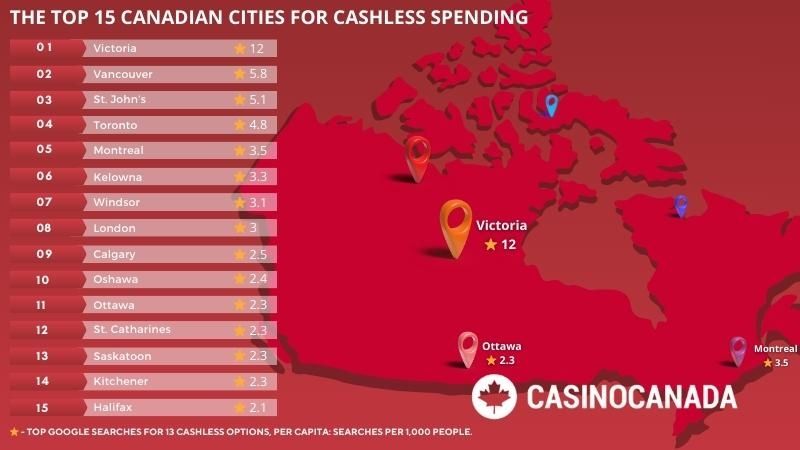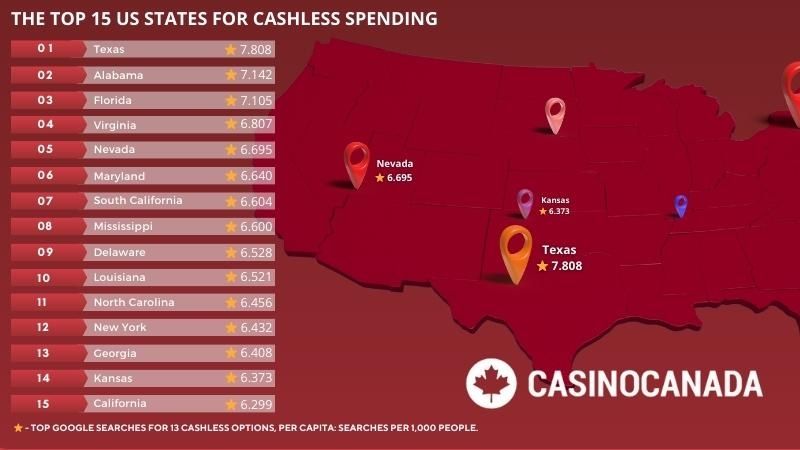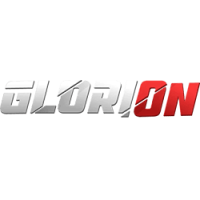How a Cashless Society Works

From shopping to regulated online gambling in Canada, digital transactions are becoming the norm. But where do cashless payments stand in Canada? We’ve decided to investigate. Hence, here’s an overview of cashless transactions in Canada, advantages and drawbacks of a cashless society, along with top locations for cashless payments in Northern America.
Is Canada Going Cashless?
With the increasing use of contactless technology, it's estimated that only 1 in 10 payments in Canada are made with cash. However, this doesn't necessarily mean that Canada is going cashless. Let's look at this phenomenon in more detail.
The tendency to go cashless is especially prevalent among young people, who tap their cards to make a transaction. This number has significantly decreased since 2014, when cash payments were 35%.
The deputy governor of the Bank of Canada, Sharon Kozicki, has stated that demand for cash is still solid despite its decline in usage. Cash payments are largely relevant among Indigenous, houseless, older Canadians, and other vulnerable societal groups.
To sum up, cash transactions are still commonly used. However, regulations to address the shift from cash to cashless in Canada have yet to be imposed.
Advantages of Cashless Society
Although the nearest future doesn’t entail morphing into a cashless society, at least not in Canada, it’s crucial to be aware of the advantages a cashless society entails:
- Convenience: From businesses running an accounting system to consumers buying goods or services, these processes are simplified and more convenient than cash payments. Additionally, with services like Uber people don't need to worry about carrying cash with them.
- Safety: Your funds have significantly higher protection when stored in a cashless system. All the payments are encrypted and can be tracked as financial institutions provide robust security measures.
- Reliability: Cashless funds are always accessible. On occasions like when travelling you can access your money digitally without the need to withdraw cash.
Drawbacks of Cashless Society
We must look at the drawbacks to get a complete picture of how a cashless society would impact payments. The downsides include privacy, exclusion and crime issues:
- Less Privacy: In cashless payment systems, all transactions are recorded. Some people prefer to keep their payments anonymous and opt for either cash or crypto payments. As a result, some might find it invasive privacy-wise to have cashless payments as the only option.
- Exclusion of Different Societal Groups: Not all citizens, especially seniors, are digitally literate or live in communities where cashless payments are standard. For them, a cashless society would bring new challenges.
- Elaborate Financial Crime Schemes: The crime world operates primarily with cash. Criminally obtained money is much easier to track in cash. A cashless society would require criminal organizations to develop new and untraceable solutions involving offshore money laundering and sophisticated schemes to stay off the radar of law enforcement agencies.
Prevalence of Cashless Payment Methods
We used Google keyword planner to determine the search volumes, therefore, the prevalence of different digital wallets during the period Aug 2022 - Sept 2023. The phrases used were:
- Visa Checkout
- Venmo
- Skrill
- Samsung Pay
- Paypal
- Meta Pay
- Mastercard click
- Klarna
- Google Pay
- Cash app
- Apple pay
- Amazon pay
- Afterpay
With this data, we determined which Canadian and US locations have the highest Google search demand for the 13 cashless options. Per capita refers to the number of searches per 1,000 people. Each location was ranked for each term and assigned an index score between 0-1. All scores were then combined to give a score out of 13.
The Top 15 Canadian Cities for Cashless Spending

Ranking first on our index, we have the Vancouver Island city of Victoria. Incredibly, the British Columbia capital ranks top for each digital payment method, besides ‘Mastercard Click’ – with no Google searches per 1,000 residents for this option, Victoria places behind the likes of Saskatoon, Ottawa, Montreal, and Toronto.
Next up is Vancouver, ahead of St. John’s, Toronto, and Montreal. Interestingly each also places second to fifth in various positions for ‘Amazon Pay’, ‘Klarna’, ‘Samsung Pay’, and ‘Skrill’ Google searches.
Taking sixth, Kelowna is trailed by Windsor and London, while Calgary and Oshawa round out our top ten. Incidentally, there are few standout results from the above five cities, besides London locals recording the second-most Google searches for ‘Mastercard Click’ – 23.7 per 1,000 residents.
Finally, Ottawa, St. Catharines, Saskatoon, Kitchener, and Halifax round out the 15 Canadian cities best prepared for a cashless society.
Top 15 US States for Cashless Spending

Taking top spot, we have the Lone Star State of Texas. Specifically, Texas locals are searching for ‘Klarna’ and ‘Samsung Pay’ more often per capita than in any other state, though the region only ranks 12th for ‘Apple Pay’, 11th for ‘Google Pay’, and 30th for ‘Venmo’.
Next up is Alabama, Florida, Virginia, and Nevada. Of the four, Alabama ranks second among all states for ‘Klarna’ and ‘Cash App’ searches per capita, Nevada sees the most searches on average for ‘Google Pay’, Virginia places fourth for ‘Paypal’, and Nevada and Florida rank strongly for ‘Samsung Pay’.
Ranking sixth is Maryland , while South Carolina and Mississippi take seventh and eighth spot, respectively. Meanwhile, Delaware and Louisiana round out our top ten.
Interestingly, each of the five above states score strongly across a range of factors. For instance: ‘After Pay’ is popular in Mississippi and Maryland; ‘Cash App’ sees a lot of searches in Mississippi and Louisiana; ‘Amazon pay’ comes up a lot in Delaware and Maryland; and ‘Klarna’ sees significant searches in Maryland and South Carolina.
The list continues with North Carolina – though the Tar Hell state ranks above New York and Georgia, while Kansas and California take 14th and 15th. Curiously, despite their relatively unimpressive overall rankings, Georgia sees the most searches per capita for ‘Afterpay’, ‘Cash App’, and ‘Apple Pay’, California ranks above all states for ‘Amazon Pay’, and Kansas scores top for ‘Paypal’.










